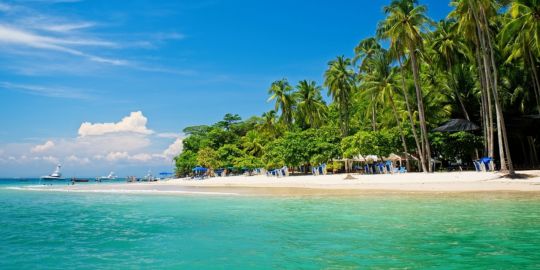Hi I heard recently that one could get up to 9 or more % interest paid on GIC type accounts in Costa Rica.
Does anyone have info on this?
Has anyone done this- so is it safe secure returns?
Thanks for any responses!
Carene Vancouver BC
Who knows what is best interest rates paid on money in which banks?
some info I found confirming this
Link and more info here http://elcoco.co/high-interest-rate-cds … -deposito/
If you've ever walked into a Costa Rican bank, you may have seen advertisements for CD's touting very high interest rates. Some recently fluctuating around 10% return per 12 month “plazo” or “term”. Currently Coopenae, (similar to a credit union) is offering Certificados de Deposito in the range of 7.25% to 12.5% per year depending on the length of the term. For the skeptic, like myself and many others who have been tainted by a difficult last few years of investing, I'm definitely a skeptic on any investment that seems “too good” and a 12.5% return on a CD seems awful hefty, baring in mind CD's in the US and Canada are usually in the 2-3% range. How can these rates be honest? How can they afford such a high interest rate ? That means a person investing 1,000,000 colones ($2000 USD) would make 125,000 colones ($250 USD) in 12 months? Well, evidently according to Coopenae, that is correct. Kind of makes me wonder why anyone in Costa Rica would put spare money into a savings account. So, is it a good idea to diversify your portfolio in Costa Rica? Check it out.
http://news.co.cr/costa-rica-banks-and- … -know/538/
Outstanding Bank Interest Rates details here http://www.usexpatcostarica.com/2012/10 … osta-rica/
Would you like to earn an outstanding interest rate while profiting from the continued devaluation of the United States Dollar? Rates for one-year certificates of deposit at the Banco Nacional and Banco de Costa Rica have surpassed 10 percent in Costa Rican Colones (CRC), and top 2.5 percent for deposits U.S. Dollars (USD). The return is a far cry from the anemic 1 percent returns on stateside bank deposits.
The chances of losing in currency exchange in Costa Rica are extremely remote, given that exchange rates have remained very stable for almost three years. During this time, the Costa Rica central bank (BCCR) has been buying U.S. dollars to the tune of hundreds of millions, hoping to prop up the dollar and keep inflation in check.
Behind the continued strength of the Colon is the army of multinational corporations, investing vast sums of money on direct capital investment and making payroll for their Costa Rica operations.
U.S. Multinationals in Costa Rica
Intel Capital (Intel Corporation)
Components Intel S.A.
Sykes Enterprises
International Business Machines (IBM)
Baxter
Baxter Americas
Proctor and Gamble (P&G)
Hewlett Packard (HP)
Western Union
Boston Scientific
Emerson
Allergan
Hologic
Intel for example, has a multi-billion dollar, 52 hectárea microchip fabrication facility (or fab) in Ribera de Belén. In addition to manufacturing, they also have an office campus in la Aurora de Heredia, which provides outsourced professional services for its worldwide operations. These investments require vast injections of dollars to maintain, and the effect on Costa Rica, a relatively small nation of less than 5 million people is readily apparent in the financial system.
So much, that every year in late November the U.S. Dollar takes a precipitous drop in Costa Rica as the multinationals inject dollars into the country to pay the annual Christmas bonus or aguinaldo, equal to 1/12 of annual salaries, or “extra month” of pay. The effect is so strong that the central bank has serious difficulty keeping the ailing dollar stable in the currency market.
A 6-12 month investment in a Colones denominated bank certificate of deposit is unlikely to come with much risk, especially for those who have been earning the 9 to 10 percent return for years, and bringing their money back to dollars. Even thirty day sight deposits in Colones are earning 4.85 percent annually. Expats who have U.S. pension income and local expenses in Costa Rica should consider the investment as a hedge against future losses in dollar devaluation.
The system for making deposits can now be done totally online, for those who have bank accounts in colones at the Banco Nacional (BN). Rates are available online, and the system provides an at a glance summary of positions. The option is also a safer alternative to keeping large deposits in savings and checking accounts, which are linked to debit cards. At the very least the loss of debit card does not expose the user to much risk, because the certificates of deposit are not available for charging.
While the Banco Nacional does not issue 1099-INT tax forms, U.S. persons are still required to pay income tax on their worldwide interest earnings. Costa Ricans with no U.S. entanglements get away tax free on this kind of income. Also, there is a small tax in Costa Rica for bank investments not denominated in Colones, which makes U.S. Dollar investments even less desirable.
Foreigners who are not legal residents of Costa Rica can no longer open accounts here. U.S. taxpayers can thank a jealous U.S. foreign policy, desperate to contain investors in the domestic markets. Banking or investing abroad, even for tax paying Americans has become notoriously complex. Legal residents of Costa Rica, however are welcome to open an account.
Hi Diegotutor
Are you currently living in CR?
I am wondering why I have never seen this topic in any CR forums. This is very big happy news to me. Even with depositing $200 000 in a bank at about 10% I can retire NOW.









